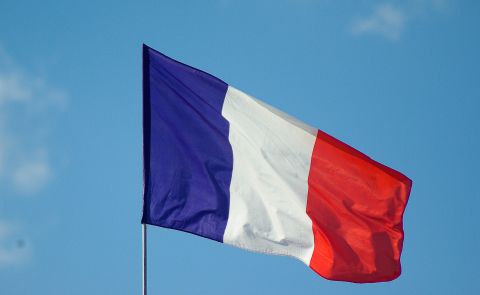
Ilham Aliyev on EU-Azerbaijan Relations and Armenians in Karabakh
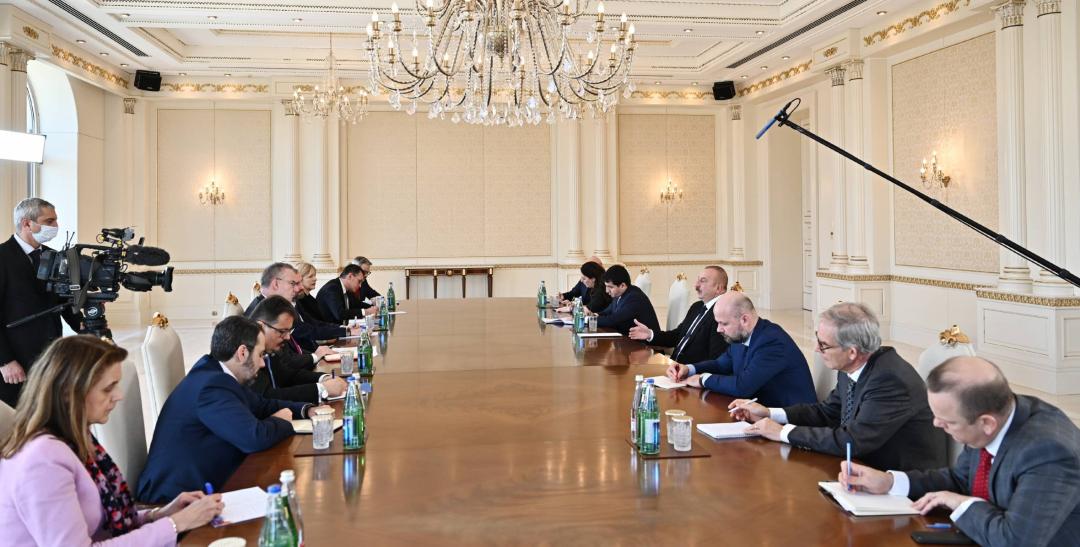
On November 17, Ilham Aliyev, the President of Azerbaijan, received a delegation, which includes officials of the European Union and several Eastern Partnership member states, led by Special Envoy of the European Union for the Eastern Partnership Dirk Schuebel, the Press Office of the Azerbaijani President reported.
At the meeting, the sides discussed the development of relations between Azerbaijan and the European Union, Azerbaijan's role in Europe's energy security, and the issues of cooperation in transport and communication. Azerbaijan was described as a regional transport and logistics hub.
They exchanged views on the normalization of relations between Armenia and Azerbaijan and the signing of a peace treaty, border delimitation, regional security, and other issues of mutual interest.
Welcoming the guests, President Ilham Aliyev said: "Welcome. Greeting a large delegation means there are many things to be discussed."
Dirk Schuebel stated: "I am a newly-appointed EU Special Envoy for the Eastern Partnership, but I am not new to Azerbaijan. I have been here many times in previous capacities in the past years and am very happy to be back. We are here with a delegation of special envoys, ambassadors for the Eastern Partnership from several member states."
He added, "We are all appointed special envoys for the Eastern Partnership to launch or maybe reload the Eastern Partnership, to modernize it in the given situation. Because obviously, it is reloaded in the current geopolitical situation. New ideas and new incentives need more tailor-made approaches. That is also the reason why we are here. We also want to listen from your side; how do you see it from your perspective? What can we do better? What can we do more tailor-made in our cooperation with Azerbaijan?"
Regarding relations with the EU, Aliyev emphasized, "This is a good platform, and we consider it a basis for our negotiations with the EU on the agreement. And it is moving successfully but slowly. Successfully because we have completed most of the chapters, more than 90 percent, but slowly because we are stuck with the issues which we think can be resolved if we have a political will from both sides. Azerbaijan has certain concerns because any agreement we sign or plan to sign must give additional benefits to our partners and us. So, we cannot sign something that can create certain economic difficulties in the midterm or long term. Therefore, the chapters where we are stuck are trade, economy, and some others. I already gave instructions to our negotiators to speed up the process, and I think there is a chance to finalize it."
He added about the Armenian minority in Azerbaijan, "We talk about sovereignty over all our territory. We all understand what sovereignty means. At the same time, they want to incorporate issues related to the Armenian minority in Azerbaijan into our peace agreement. It will not work. It is not possible. And we will not agree on that. Therefore, we need to have a clear position from the Armenian government about their agenda."
"If they (Armenia's political leadership) want to talk about rights and security of Armenians in Karabakh, it will not work. We are ready to talk about that with Armenians who live in Karabakh, not with those who have been sent from Moscow hiding in their pockets billions of stolen money from Russian people, like person called Vardanyan (newly appointed de-facto Prime Minister of the unrecognized Republic of Nagorno-Karabakh) who was transferred from Moscow there with a very clear agenda. But we are ready to talk to those people in Karabakh who live there and who want to live there," said Aliyev .
Regarding the recent remarks made by Armenia's Prime Minister Nikol Pashinyan, Aliyev stated, "The country which wants peace should refrain from very dangerous rhetoric, which Armenian officials afforded recently, comparing Azerbaijan to ISIS and Al-Qaeda, I think is very dangerous rhetoric. First, they are the ones who acted as ISIS and Al-Qaeda. Ambassadors of the EU visited the liberated territories. Armenians did the same as what was done by ISIS and Al-Qaeda concerning historical and religious heritage. Mr. Pashinyan, when he uses this wording, should know that we hear it, and what will be our reaction he should also think about."
See Also

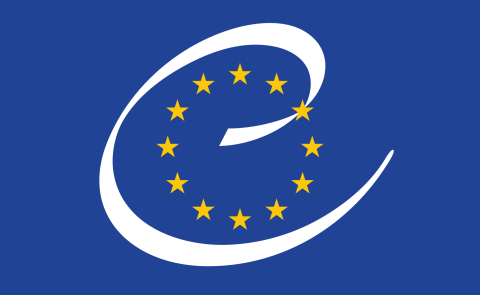
Armenia Strengthens Ties with Council of Europe
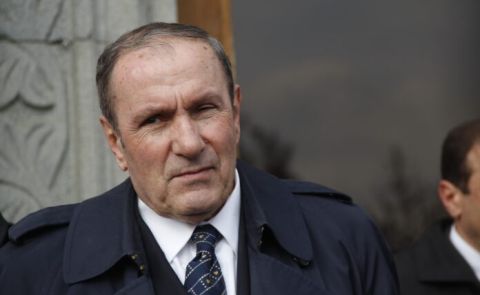
Former Armenian President Labels Pashinyan a Traitor and Blasphemer
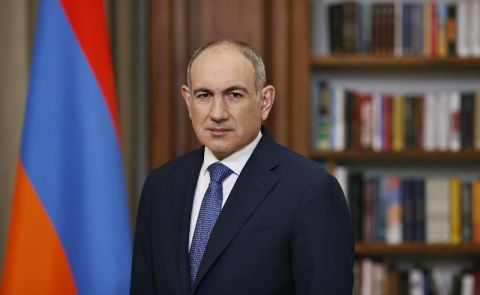
Pashinyan Addresses Key Issues on Church, National Future, and Fund Allegations
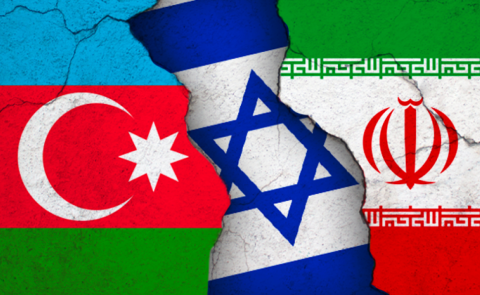
Azerbaijan Calls for 'Dialogue and Diplomatic Resolution' Between Israel and Iran
